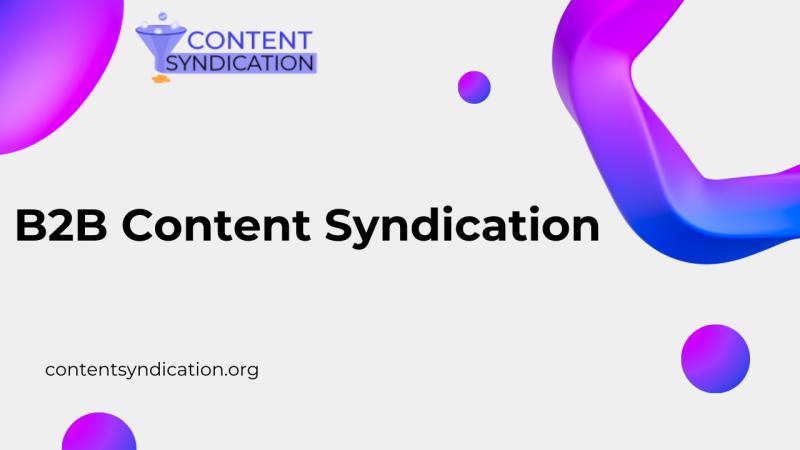The New Rules of Content Syndication in the Age of Intent Data and ABM

Content syndication has long been a staple in the B2B
marketer’s toolkit. But as buyer behavior becomes more complex and the lines
between marketing and sales continue to blur, traditional strategies are no
longer enough. The rise of intent data and account-based marketing
(ABM) has completely rewritten the rules.
If you’re still syndicating content the same way you did
five years ago, you’re not just falling behind—you’re missing out on
high-intent leads that are ready to convert. In this post, we’ll explore how
the syndication game has changed and what you need to know to stay ahead.
From Volume to Precision: The ABM Shift
B2B marketing is no longer a numbers game. Spray-and-pray
tactics are being replaced by laser-focused strategies that prioritize quality
over quantity. With ABM, marketers are narrowing their scope to focus only on
high-value accounts—and content syndication must follow suit.
Instead of broadcasting whitepapers to a broad audience,
smart marketers are customizing content formats, messaging, and distribution
channels to match the needs of specific accounts. Syndication vendors who align
with your ABM goals and deliver targeted reach will help amplify engagement
within your Ideal Customer Profile (ICP).
The Role of Intent Data: Timing is Everything
Intent data provides visibility into what your prospects are
researching long before they fill out a form or respond to outreach. When
layered into your syndication campaigns, it unlocks powerful possibilities:
- Personalized
syndication: Serve different assets based on the buying stage and
interest signals.
- Smart
prioritization: Focus budget and effort on companies actively
researching your solution category.
- Optimized
follow-up: Sales can engage with context-rich conversations,
increasing conversion rates.
However, leveraging intent data effectively within
syndication efforts requires strategic alignment and the right partners who
understand the nuances of this approach.
Avoiding Common Pitfalls in Modern Syndication
As the landscape evolves, many teams still fall into traps
that waste budget and hinder ROI. Some of the most damaging b2b
content syndication mistakes include:
- Relying
on generic, untargeted lists
- Failing
to validate lead intent before routing to sales
- Treating
syndication as a lead dump rather than a nurturing entry point
- Ignoring
alignment with ABM and sales goals
These mistakes not only reduce campaign effectiveness but
also harm brand reputation with irrelevant outreach.
Why Modern B2B Brands Need Smarter Syndication Services
To navigate this new era, businesses must partner with
vendors offering smarter, data-driven b2b
content syndication services. Look for partners who:
- Integrate
real-time intent data and firmographic filters
- Customize
distribution strategies based on your ABM tiers
- Offer
transparent lead validation and nurturing workflows
- Provide
insights beyond lead volume—like engagement metrics, persona matches, and
buying signals
The right syndication partner acts as an extension of your
revenue team, helping you identify and convert high-intent prospects
efficiently.
Conclusion: Syndication 2.0 Is Here
The combination of ABM and intent data has transformed B2B
content syndication from a static distribution tactic to a dynamic,
high-precision engine for growth. By avoiding common missteps and embracing the
new rules, marketers can unlock higher ROI, stronger engagement, and more
qualified pipeline.
If your current strategy isn’t aligned with these trends,
it’s time for a refresh. The future belongs to brands that syndicate smarter not
louder.
Post Your Ad Here

Comments